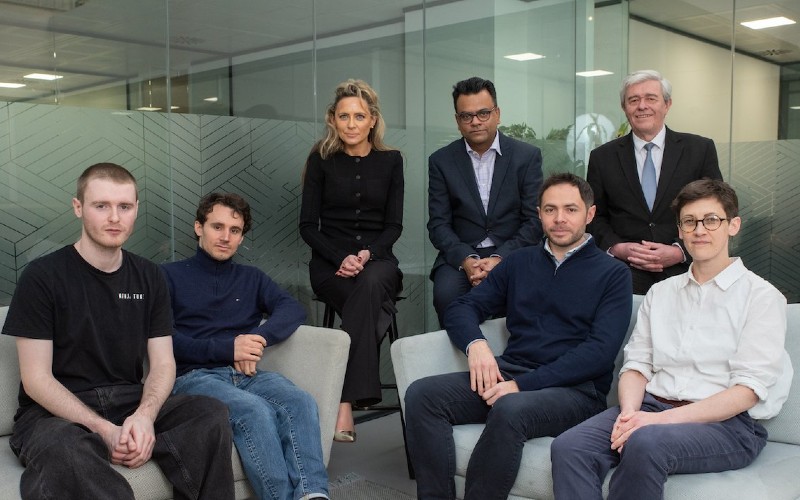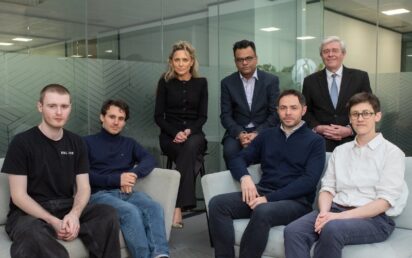Stanhope AI has raised £2.3 million in seed funding to teach machines how to make human-like decisions in the real world.
The round was led by the UCL Technology Fund. Creator Fund also participated, along with MMC Ventures, Moonfire Ventures, Rockmount Capital and leading angel investors.
Stanhope AI was founded as a spinout from University College London, supported by UCL Business, by three of the most eminent names in neuroscience and AI research – CEO Professor Rosalyn Moran (former Deputy Director of King’s Institute for Artificial Intelligence), director Karl Friston (Professor at the UCL Queen Square Institute of Neurology) and technical advisor Dr Biswa Sengupta (MD of AI and cloud products at JP Morgan Chase).
Based on decades of neuroscience research, the team’s algorithms are always trying to guess what will happen next – just like the human brain. They learn from any discrepancies between predicted and actual events to continuously update their ‘internal models of the world’.
Instead of training vast LLMs to make decisions based on seen data – a ‘ best guess’ approach – Stanhope’s agentic AI models are in charge of their own learning. They autonomously decode their environments and rebuild and refine their ‘world models’ using real-time data, continuously fed to them via onboard sensors.
Professor Friston, a world-renowned neuroscientist at UCL whose work has been cited twice as many times as Albert Einstein, is the inventor of the Free Energy Theory Principle.
Friston’s principle theory centres on how our brains minimise surprise and uncertainty. It explains that all living things are driven to minimise free energy, and thus the energy needed to predict and perceive the world. Such is its impact, the Free Energy Theory Principle has been described as the ‘most all-encompassing idea since the theory of natural selection’.
Active Inference sits within this theory to explain the process our brains use in order to minimise this energy. This idea infuses Stanhope AI’s work, led by Professor Moran, a specialist in Active Inference and its application through AI; and Dr Biswa Sengupta, whose doctoral research was in dynamical systems, optimisation and energy efficiency from the University of Cambridge.
In the immediate term, the technology is being tested with delivery drones and autonomous machines used by partners including Germany’s Federal Agency for Disruptive Innovation and the Royal Navy.
In the long term, the technology holds huge promise in the realms of manufacturing, industrial robotics and embodied AI. The investment will be used to further the company’s development of its agentic AI models and the practical application of its research.
Professor Rosalyn Moran, CEO and co-founder of Stanhope AI, said: “Our mission at Stanhope AI is to bridge the gap between neuroscience and artificial intelligence, creating a new generation of AI systems that can think, adapt, and decide like humans.
“We believe this technology will transform the capabilities of AI and robotics and make them more impactful in real-world scenarios. We trust the math and we’re delighted to have the backing of investors like UCL Technology Fund who deeply understand the science behind this technology and their support will be significant on our journey to revolutionise AI technology.”
David Grimm, partner UCL Technology Fund, added: “AI startups may be some of the hottest investments right now but few have the calibre and deep scientific and technical know-how as the Stanhope AI team.
“This is emblematic of their unique approach, combining neuroscience insights with advanced AI, which presents a groundbreaking opportunity to advance the field and address some of the most challenging problems in AI today. We can’t wait to see what this team achieves.”


